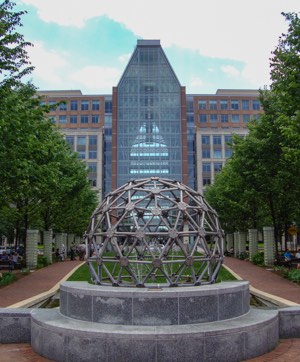
The United Inventors Association represents almost 15,000 independent inventors and over 70 local inventor clubs across the US. As the innovation community awaits a new Under Secretary of Commerce for Intellectual Property and Director of the United States Patent and Trademark Office (USPTO) we are supportive of an advocate for strong patent rights.
For more than 200 years the United States has accepted patents as property rights which have always been considered valid until proven otherwise. Recent court decisions, changes in patent laws and adverse PTAB rules established by the USPTO have all resulted in challenges to long held practices that had previously supported the innovation community. Without a course correction, true innovation in the US will soon begin to dry up and America’s most valuable asset, its grass root innovators, will as well.
Since the advent of the Patent Trial and Appeal Board (PTAB) and other rules changes established in the America Invents Act, the American patent system has been on a downward spiral. The US patent system has fallen from the best in the world to 10th, now ranked even behind China, a country now drawing innovators and investors away from the US. Patents are the currency of the innovation economy and without a strong patent system our economy will falter. It is time to take a stance that will result in a strengthened patent system and the next USPTO Director can play a pivotal role.
Inventors depend upon the strength of issued patents to begin businesses or develop products that can be licensed to US companies. Both create new jobs! The PTAB reviews, often initiated by willfully infringing companies, have changed the property protection promise made when the USPTO originally issued their patent. Now, after spending years and countless dollars on their original patent application, those inventors have to once again prove their invention is valid rather than requiring the challenger to prove the patent is invalid. Large companies know they can infringe with impunity since they can repeatedly challenge any issued patent at the PTAB. Unbelievably 90% of the challenged patents to date have resulted in at least one claim invalidated! This result comes from the very same USPTO that collected significant fees and issued the patent in the first place. Someone needs to ask the simple question, what’s wrong with this picture? The resulting uncertainty has left the independent inventor community unsure if they should even apply for a patent in the future and is leaving a growing number of investors on the sidelines. This is not good for America.
An ideal candidate for the next head of the USPTO would be someone who understands that patents are property not public rights, that issued patents are valid until otherwise proven invalid, and that recent changes in patent law and decisions from the Supreme Court have significantly diminished the historic strength of the US patent system. The candidate should pledge to make the US patent system strong again by working to correct the wrongs that have enveloped the patent system during the past few years, particularly the PTAB panels. The UIA would support someone that who considers independent inventors, innovators and entrepreneurs valued USPTO shareholders and a cornerstone for economic growth
UPDATED at 10:57am ET

![[IPWatchdog Logo]](https://ipwatchdog.com/wp-content/themes/IPWatchdog%20-%202023/assets/images/temp/logo-small@2x.png)


![[Advertisement]](https://ipwatchdog.com/wp-content/uploads/2024/04/Patent-Litigation-Masters-2024-sidebar-early-bird-ends-Apr-21-last-chance-700x500-1.jpg)

![[Advertisement]](https://ipwatchdog.com/wp-content/uploads/2021/12/WEBINAR-336-x-280-px.png)
![[Advertisement]](https://ipwatchdog.com/wp-content/uploads/2021/12/2021-Patent-Practice-on-Demand-recorded-Feb-2021-336-x-280.jpg)
![[Advertisement]](https://ipwatchdog.com/wp-content/uploads/2021/12/Ad-4-The-Invent-Patent-System™.png)







Join the Discussion
11 comments so far.
Mary Gattineri
June 13, 2017 08:22 amWarren, keep doing what you’re doing! Your integrity and honor is needed now more than ever.
Mary Gattineri
Magical Housewares/Creations
Mike Chad
June 12, 2017 01:50 pmWhen you have the fox guarding the hen house and ask another fox if this is a good idea? I wonder what the answer will be?
Maybe we should be looking at the PROBLEM.
Listen to the message! Don’t discount the message because you don’t like the way the mrssager is dressed, AND, you are trying to put a feather in you own (blog)cap.
Thank you Warren and the UIA for watching our back!
D. Maseles
June 12, 2017 12:58 pmSorry — it should have been “(Fed. Cir. 1991).”
D. Maseles
June 12, 2017 12:57 pmTo add to the discussion: Patents “have the attributes of personal property.” 35 USC Section 261. This was a change from treating them as akin to real property. See Judge Newman’s well-reasoned concurrence in Exxon v. Lubrizol, 935 F.2d 1263 (1991). Whether the Supreme Court will agree is another question.
Greg DeLassus
June 12, 2017 12:09 pm“Not true. SCOTUS will decide whether IPRs are constitutional. If they decide IPRs are constitutional that still leaves a LOT of latitude for the next Director to choose to conduct IPRs fairly…”
Dear Gene,
I would like to make two points in response:
(1) Just to be clear, when I wrote “*believes* on this question” the “this question” that I specifically had in mind was “are patents public rights?”. I agree with you that other issues about the PTAB respecting patent owner rights will remain important if the SCotUS holds IPRs to be constitutional, but I was not writing about those issues in my #4.
(2) That said, I guess I figure that it is only a matter of time now before the SCotUS declares IPRs to be unconstitutional. I would not have predicted even a few days ago that a declaration of unconstitutionality was likely, but that was before cert was taken. The SCotUS rarely takes cert to the CAFC in order to affirm, so I figure that one has to regard it as more likely than not that IPRs (and PGRs & CBMs) are soon to be no more.
Does anyone happen to know what a declaration of unconstitutionality would mean for long-since already-decided IPRs? That is, if you had claims declared unpatentable and you have no longer any pending appeals, does a declaration that the IPR scheme was unconstitutional all along mean that it is as if the IPR never happened, or does the final judgment rule mean that those claims already invalidated remain invalid?
Anon
June 12, 2017 11:35 amAt pains of sounding like a broken record (and some may feel: “too late”), I would take issue with Gene’s statement that it is the PTAB that is “the PTAB denies patent owners fundamental due process.”
The current PTAB is – to borrow Greg’s phrase – acting fully properly under the law as written by Congress (for weal or woe).
It simply is not actions by the PTAB that draw the violation of due process complaint.
The PTAB is the wrong target.
The target must be Congress and what Congress has written.
If there are denials of due process AND the PTAB is acting within what Congress has written, the battle will (and must) still resolve back to what Congress has written.
No court (or Court) is going to side with anyone why wants to fight the PTAB for that executive agency administrative body for exercisIng its powers as provided by the written word of Congress.
Further, any even temporary respite provided by the Director of the USPTO can be eradicated by the next director.
Such gossamer “answers” are just not the types of answers that innovators need (and can depend upon).
Gene Quinn
June 12, 2017 11:03 amGreg-
Not true. SCOTUS will decide whether IPRs are constitutional. If they decide IPRs are constitutional that still leaves a LOT of latitude for the next Director to choose to conduct IPRs fairly, as opposed to the way they are conducted now. There cannot be any serious or legitimate debate — the PTAB denies patent owners fundamental due process. They refuse to consider evidence timely submitted, they refuse to allow amendments despite the statute saying there is a right to amend, they refuse to issue final decisions on all the claims challenged, they make up their own standards rather than follow statutory tests, and much more. The next Director can fix all of that even if the Supreme Court says IPRs are constitutional. So the choice of the next Director really, really matters.
Greg DeLassus
June 12, 2017 10:43 amThe Supreme Court just took cert today in Oil States, so it likely will not matter what the next PTO director *believes* on this question. The SCotUS is going to settle the matter (for weal or woe) and the PTO director will simply have to follow the law set down for him or her.
Dale B Halling
June 12, 2017 10:34 amThere is no such thing as a public right. The fact that this has to be pointed out shows how big of a problem we are facing. For mor see https://hallingblog.com/2017/05/20/property-rights-the-foundation-of-freedom/
Dale B Halling
June 12, 2017 10:29 amI am curious where you have seen rankings of patent systems in the world. Can you provide me a link?
IPdude
June 12, 2017 10:27 amOil States granted cert today. Let’s see if SCOTUS does the right thing and sticks with its own precedent: patents are a property right, not public.